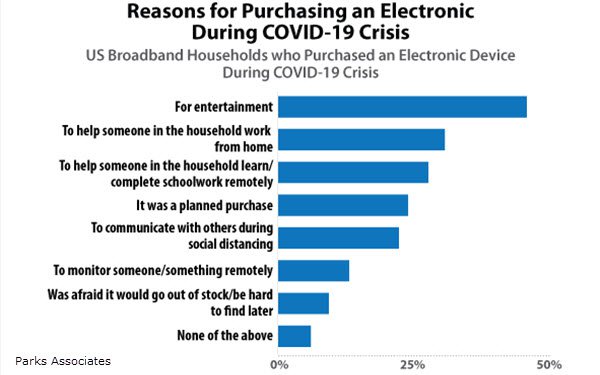
Don’t shoot the
messenger, please, but yes -- according to Parks Associates research, U.S. consumers have reduced discretionary spending by a depressing 50% since the onset of the pandemic.
Moreover,
“70% of U.S. broadband households believe the economy will need a long time to recover from the COVID-19 pandemic, and only 23% believe the economy will rebound quickly once social-distancing
measures are lifted,” reports David Drury, research director at Parks, which is conducting ongoing research on the pandemic's effects on consumer behaviors and attitudes in the consumer and home
technology markets.
“Due to the ongoing COVID-19 pandemic, these changes in behavior will not reverse in the near term, with 30% of households planning to avoid public events and 29%
delaying vacations or personal travel till at least 2021,” Drury adds.
Not exactly signs of confidence in our country’s ability (at least under present
“leadership”) to force the pandemic back in the bottle, or to rebound economically anytime soon.
Still, even when most of the economy is in shreds, there are always
“winners.”
And in this disaster, the winners continue to be video and consumer electronics.
In fact, consumer electronics and computer purchases have increased for the
first time since 2011, with 26% of U.S. broadband households having purchased electronics since the COVID crisis hit, the research finds.
And in contrast to their attitudes toward most
discretionary spending, CE spending and increased at-home video consumption continue to show solid purchase intentions.
With pandemic conditions worsening rather than improving in the
U.S., Parks forecasts that strong demand for technology products and services will continue into 2021 and possibly even 2022 — including high broadband usage at home for streaming video services
and video-game downloads, as well as for message delivery, video calling, and virtual meeting apps.
Currently, 74% of U.S. broadband households subscribe to at least one streaming video
service, and nearly half subscribe to two or more, Parks’ data confirms.